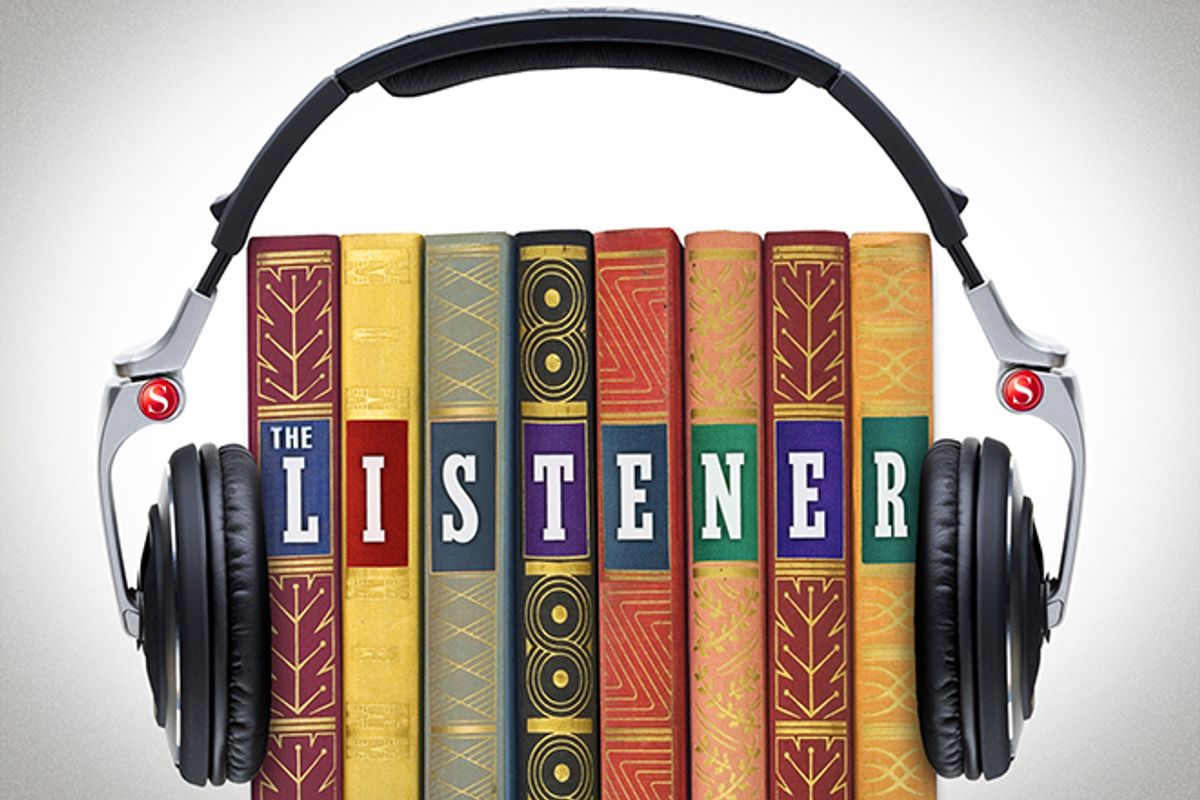For the last nine months I’ve been listening to audiobooks during my weekly commute between jobs in Ohio and Iowa. I get hours of entertainment and companionship, but sometimes I'm frustrated with the audiobook form. It’s a recording, meant for the ears rather than the eyes. So why not take better advantage of that form, and use it to do things the printed page can’t do? If the audiobook is nonfiction, why not allow some of the real-life characters deliver their dialogue in their own voices? Why not use a little music? Why not play with the sonic texture of the thing?
On commutes like mine, the natural competitor of the audiobook is the podcast, and more than once I’ve turned off an audiobook in favor of “WTF with Marc Maron,” the twice-weekly podcast in which the stand-up comic and former Air America radio host interviews other comics, actors, musicians and writers. Maron now has a new memoir, "Attempting Normal," and naturally, the audiobook version cracks the form wide open, with features the hardcover can't match.
Unlike most stand-up comics, Maron doesn’t use his humor to keep people constantly at a distance. “WTF” is about collapsing the distance between the interviewer and his subject. Maron records the podcast in his garage, and part of the pleasure of “WTF” is that it feels like a thing made in a garage – a recording of a personal conversation between two people who are in the process of exchanging something intimate about their private lives for the first time. It is almost always interesting to eavesdrop on that kind of conversation, a and even more so when the interviewee list includes Conan O’Brien, Sarah Silverman, Chris Rock, Megan Mullally, Ben Stiller, Lucinda Williams and Judd Apatow.
Maron’s posture toward such famous people almost always goes like this: Of course I am interested in your private life because your public life is so interesting. Of course I am interested in the trajectory of your career because I am a person who is also building a career. What is it like, to have done all the things you have done, and to yet have a life as a human being? What is it like to be part of the family that gave birth to you? What were the low points in your life? What makes you hurt? What feels good? What did you want, and what did it feel like when you got it, and what does it feel like when it seems like you’ve lost it?
Maron often gets his subject to go to these places by being free with the trouble of his own life, the struggles of his own career, and most of all the story of his own failures as a husband, child and friend. It never feels treacly, because Maron isn’t soft. He’s dark, and his humor is full of sharp and cutting edges. If he’s good at empathy, it’s a hard-earned goodness that is constantly threatened by a corresponding angry mean streak.
These are the tensions that make “WTF” so interesting and enjoyable, and Maron brings all of them to “Attempting Normal,” which is better in audiobook format than it is in hardcover, in part because “Attempting Normal” feels in many ways to be an extension of the podcast. It recycles and amplifies material Maron developed on the fly during the 10-minute monologues he delivers at the beginning of each episode of “WTF.” And, smartly, it includes outtakes from the podcast between some of the chapters, which means that instead of merely hearing Maron talk about what happens in the podcast, the listener gets to actually hear the podcast inside the audiobook — an experience the print book can’t replicate, despite its offering of transcripts from the podcast.
There is another formally interesting thing shared by “Attempting Normal,” in book and audiobook alike. In Jane Smiley’s "13 Ways of Looking at the Novel," she writes about how the novel is “an essentially compromised form which grew out of earlier types of literature and can’t be understood except by reference to them.” She makes a list of these earlier forms, which she arranges around the twelve stations of the clock face: travel, history, biography, tale, joke, gossip, diary/letter, confession, polemic, essay, epic, and romance. Part of the pleasure of the novel, Smiley’s clock seems to be saying, is the way in which the author hybridizes from the available earlier forms and offers the result as a new thing.
The memoir less often works this way, but it can, and this is something that Maron seems to know intuitively. “Attempting Normal,” like “WTF,” and like Maron’s standup comedy, is interested in pushing past the barriers of its genre, often provocatively. “Attempting Normal” veers, sometimes wildly, from personal history to confession to documentary to punch line to psychoanalysis to intellectual rant to anti-intellectual armoring to inside joke to dead serious to deflatingly unhyperbolic to high to crude to political to nostalgic to philosophical to historical to proud to self-abasing. Its constant and sometimes schizophrenic-seeming modulation of tone is probably a product of a mind habituated to keeping impatient audiences off-balance, and it works on audiobook listeners in the same way, by which I mean: Happily off-balance. Appreciative of the effort, and pleased by it.
* * *
New to Audible? Listen to this and other titles for free or check out a sample.

Shares